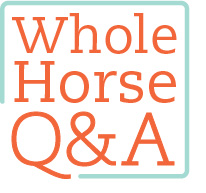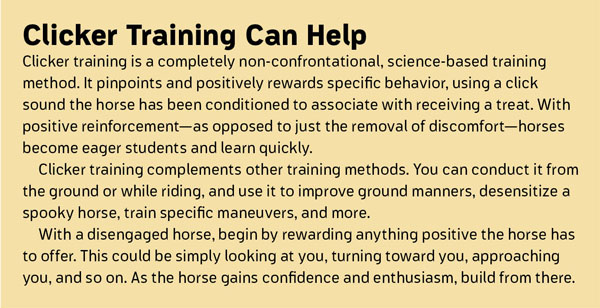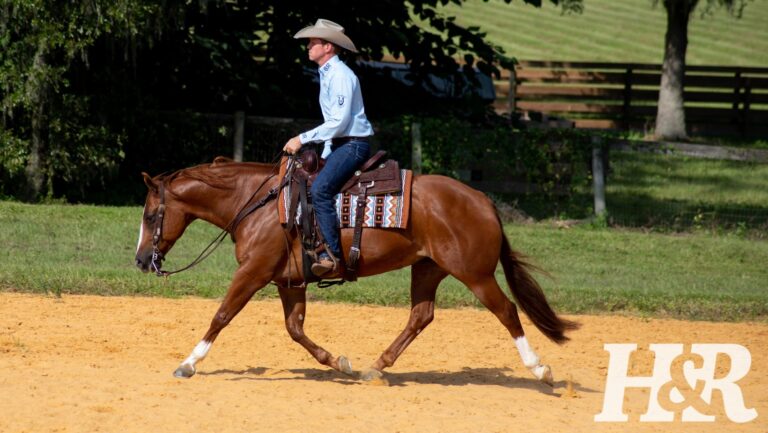Q I recently bought a 15-year-old Morgan mare that had been with one family her entire life, passed down to younger members over the years. She’s well trained but has been used hard, and is a little grumpy. She paws when tied, tries to bite when saddled, and resists being bridled. I’ve arranged for dental work, a vet exam (she checked out OK), and a chiropractic adjustment. Underweight when I got her, she’s now in good shape. Shims under her saddle help to make her more comfortable. Her attitude has improved somewhat but I don’t feel the connection I’d like to have. What can I do to improve our relationship?

CYNTHIA WARNER, Montana
A First, good job for having your mare checked by your veterinarian for any medical causes of her behavior. Your mare has been through many handlers/riders and environmental changes. Such changes—which might include variations in housing, feeding, transportation, social contacts, and work routine—can be stressful for a horse, even leading to gastric ulcers. Ulcers, in turn, can cause a variety of behavior changes, including irritability, as well as weight loss. In my clinical experience as a veterinarian and behavior specialist, I find that not feeling well is an important factor for many unwanted behaviors in horses. It sounds as if your mare currently feels better physically than when you first acquired her.
Now you’re ready to get started building a new relationship with her. Some horses bond more slowly than others, but most enjoy the company of people. In your case, your mare has had multiple handlers and been “used hard.” In addition, she might not have been feeling well for a period of time. This combination can cause her to associate human contact with hard work, discomfort, or even pain. That means she’s classically conditioned to believe the presence of a human will not have a favorable outcome for her.

Take time to convince her the hour spent with you is more pleasurable than the 23 she spends on her own. Use a technique called counter conditioning, or creating new associations by making every interaction with your mare short and pleasurable.
Make a list of things your mare enjoys. These might include brushing, feeding, light groundwork, going for walks, massage, in-hand grazing, and so on. For the next several weeks, interact with your horse in several short sessions per day, using only those interactions that are pleasurable for her. Over time, you’ll see that she’s making new associations, and that your presence elicits a positive emotional response in her. Build on that for your connection under saddle, as well. Clicker training (see box) can also be extremely helpful for horses that seem disengaged in general.
JEANNINE BERGER DVM, DACVB
Director of Behavior Resources
San Francisco S.P.C.A.






